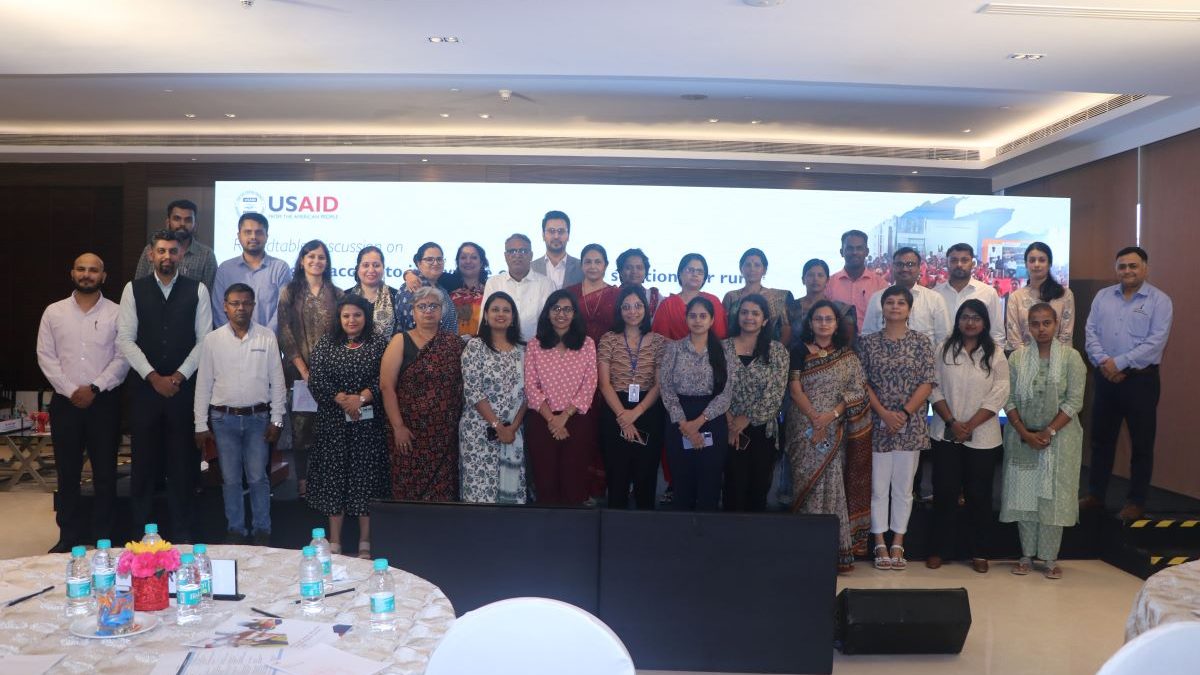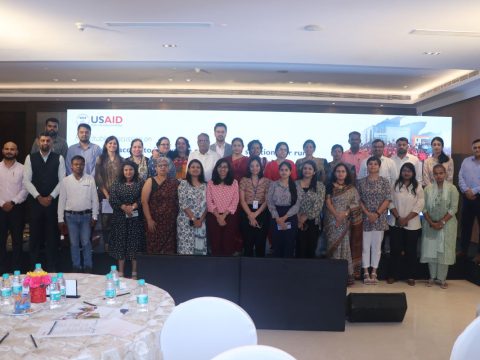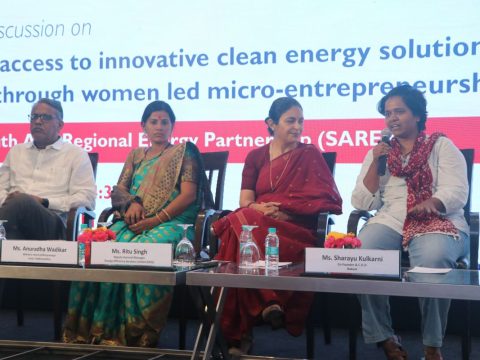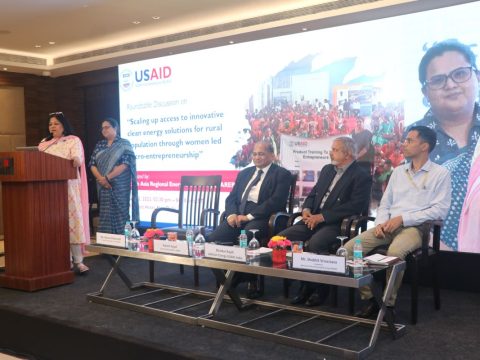Innovative Clean Energy Solutions for Rural Population through Women Led Micro-Entrepreneurship: Transforming the Energy Sector
USAID’s flagship regional energy program, The South Asia Regional Energy Partnership (SAREP) emphasizes on gender equality and social inclusion as a cross cutting theme to meet its technical objectives of improving regional energy markets, advancing clean energy solutions, modernizing utilities, and mobilizing investments. To further this, A Roundtable Discussion on ‘Scaling up Access to Innovative Clean Energy Solutions for Rural Population through Women Led Micro-Entrepreneurship’, was organised on July 13, 2023 in New Delhi.
In her welcome address, Ms. Apurva Chaturvedi, Sr. Clean Energy Specialist, USAID/India highlighted the importance of building a network of women micro-entrepreneurs to provide them with knowledge, skills & access to energy-efficient, economically viable technologies, create employment opportunities, and strengthen the rural economy.
The keynote address was delivered by Mr. Shobhit Srivastava, Scientist D, Ministry of New & Renewable Energy (MNRE) who emphasized the importance of distinguishing between ’empowering women’ and ‘powering women’. He added that the former concept, while vital, primarily focuses on sustaining women’s current conditions while ‘powering women’ goes a step further by aiming to improve their livelihoods and propel their growth and progress. He also talked about how MNRE is working on increasing participation of women in the green energy transition.
Through SAREP Partnership Fund (SPF), SAREP is also working with Swayam Shikshan Prayog (SSP) to scale up access to innovative clean energy solutions for rural population in Maharashtra and Bihar. The project is mainstreaming gender diversity by promoting women led micro-entrepreneurship business models for scaling access to innovative clean energy solutions and improving rural livelihood. Mr. Upmanyu Patil, Director, Swayam Shikshan Prayog (SSP) spoke about how with USAID’s support trained over 1000 women in clean energy technology in remote districts of Maharashtra and Bihar.
Ms. Anuradha Wadikar, a women micro-entrepreneur from Latur district, Maharashtra shared her transformational entrepreneurial journey of installing multiple biogas units in her village and neighbouring areas. She talked about how Swayam Shikshan Prayog’ s training in biogas and vegetable coolers, contributed to the financial stability of family and enabled her to become a trusted advisor among women farmers.
Various discussions took place on how scaling women entrepreneurship in the clean energy ecosystem needs innovative models of financing as there is a gender gap in the financial inclusion, especially for rural women. Various perspectives, rich experiences, and views on improving gender-diversity in clean energy rural entrepreneurship were seen during the event.
The importance of investing in women entrepreneurship has multiplier effects that can catalyse generational equity, women should not be looked as just beneficiaries, but as partners in the green energy transition. Women have the potential to be the leading champions as they suffer the most due to inequitable energy access. Improvements in scaling up women’s participation in the clean energy transition need to focus on partnerships, collaboration and foster shared learning among all relevant stakeholders.
The event saw a participation of 31 participants from government, not-for-profits working on rural livelihood applications, think tanks and women micro entrepreneurs will share their perspectives, experiences and discuss strategies to improve sustainable energy access and associated livelihood opportunities.





